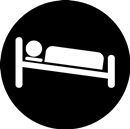Posture Survey conducted on Thisisms Forum reached 100 vote target?
| From: | Andrew K Fletcher ) |
| Sent: | 19 June 2010 06:44:09 |
| To: |
.ExternalClass .ecxhmmessage P {padding:0px;} .ExternalClass body.ecxhmmessage {font-size:10pt;font-family:Verdana;} Dear Dr Zamboni, Dr Calude Francheshi, Dr Schelling, Dr Sclafani, Dr Beggs, Helen Yates (MSRC)
The results from a survey relating to posture in people with ms has revealed some very interesting patterns in the onset of new symptoms and relapses.
We would all like to hear your views on the results at Thisisms, and I am sure at the Multiple Sclerosis Resource Centre.
Dear Helen, if you could include a link to the original poll on your site and / or suggest a similar poll for New Pathways Magazine with a link from your website we could test the results. If we could involve a University with a view to publishing a peer reviewed paper based on both results it would prove to be a very valuable contribution to understanding how altering our sitting and sleeping posture can have a tremendous affect on ms symptoms.
Andrew K Fletcher
Location of Survey:
The results from a survey relating to posture in people with ms has revealed some very interesting patterns in the onset of new symptoms and relapses.
We would all like to hear your views on the results at Thisisms, and I am sure at the Multiple Sclerosis Resource Centre.
Dear Helen, if you could include a link to the original poll on your site and / or suggest a similar poll for New Pathways Magazine with a link from your website we could test the results. If we could involve a University with a view to publishing a peer reviewed paper based on both results it would prove to be a very valuable contribution to understanding how altering our sitting and sleeping posture can have a tremendous affect on ms symptoms.
Andrew K Fletcher
Reply from Dr Franz Schelling on MS Postural Survey
Email: Permission Obtained From Dr Schelling to share
RE: Posture Survey conducted on Thisisms Forum reached 100 vote target
From: Dr. Franz Schelling
Sent: 19 June 2010 08:16:04
To: 'Andrew K Fletcher'
Dear Andrew,
The discrepancy between 1% deteriorations noticed at night while trying to get out of bed and 17% upon rising from bed as well as 18% upon waking in the morning appears remarkable.
In regard of the underlying haemo- and CSF-dynamic events, Alperin’s study fails to take into account that it is respiratory and other other bodily movements and exertions which alter intra- cerebral and –spinal fluid dynamics for more abruptly and intensely than arterial pulsations.
What I would yet primarily be interested to learn more about are the effects of raising the MS patients’ beds at different angles – and the dependence of these effects upon the presence of different forms of stenosis of, on the one hand, lesion-related and, on the other, not lesion related venous drainage systems of the brain.
Sincerely,
Franz
RE: Posture Survey conducted on Thisisms Forum reached 100 vote target
From: Dr. Franz Schelling
Sent: 19 June 2010 08:16:04
To: 'Andrew K Fletcher'
Dear Andrew,
The discrepancy between 1% deteriorations noticed at night while trying to get out of bed and 17% upon rising from bed as well as 18% upon waking in the morning appears remarkable.
In regard of the underlying haemo- and CSF-dynamic events, Alperin’s study fails to take into account that it is respiratory and other other bodily movements and exertions which alter intra- cerebral and –spinal fluid dynamics for more abruptly and intensely than arterial pulsations.
What I would yet primarily be interested to learn more about are the effects of raising the MS patients’ beds at different angles – and the dependence of these effects upon the presence of different forms of stenosis of, on the one hand, lesion-related and, on the other, not lesion related venous drainage systems of the brain.
Sincerely,
Franz
Location of Survey:
| When are you most likely to notice a significant relapse /new symptom (RRms) or general deterioration / worsening of symptoms /new symptom (PPms) | ||||||||||||||||||||||||||||||||||||||||||||||||||||||||||||||||||||||
|
||||||||||||||||||||||||||||||||||||||||||||||||||||||||||||||||||||||
| Total Votes : 100 | ||||||||||||||||||||||||||||||||||||||||||||||||||||||||||||||||||||||
